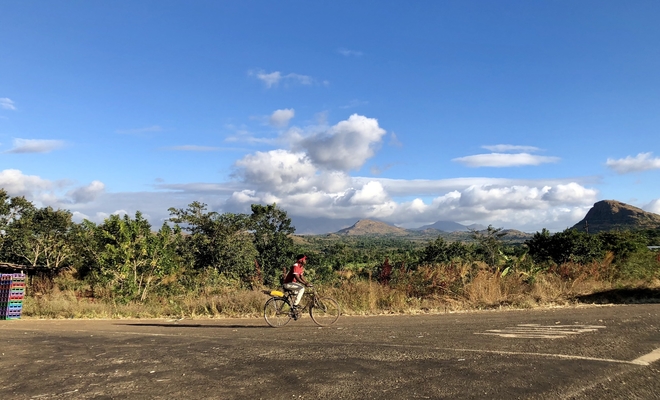I was teaching in Malawi a few weeks ago when I accepted an invitation to participate in a debate on the environmental footprint of population growth hosted by The Norwegian Academy of Science and Letters. Although I had not explicitly worked on population policy, I was intrigued by the prospect of better understanding why population is often a neglected area in the mainstream climate change discourse. And the thought of engaging with an Earth Systems scientist and a philosopher was much too good to pass. I was also intrigued by the fact that population control is not explicitly mentioned in the SDGs.
Dan Banik - Page 2
Malawi is an illustrative example of the challenges that low-income countries face as they try to make themselves attractive for aid agencies, international institutions and private sector actors in the quest to promote development and reduce poverty.
A recent report – Spotlight on Sustainable Development 2018 – published by a group of civil society organizations discusses new policy pathways for a more effective implementation of the 2030 Agenda. It highlights the need to redefine policies for sustainable development and ways of overcoming contradictions in the implementation of the 2030 Agenda.
An estimated 38 million people in the world today are vulnerable to famine and 815 million suffer from various forms of hunger. No country epitomizes the hunger challenge better than India. The country's much touted success in preventing famine due to democratic political institutions (as famously argued by the Nobel laureate Amartya Sen) has not been replicated in the field of chronic hunger, which remains a major concern and affects large groups in the population.
Three years have elapsed since the introduction of the 2030 Agenda and the Sustainable Development Goals (SDGs) on the world stage. This summer, I interacted with UN and World Bank officials, country representatives, academics, civil society organizations and numerous think tanks. My goal was to better understand the current status of policymaking and implementation of the SDGs at global, national and local levels. Here is a brief overview of what I found.
A persistent complaint among many developing country leaders is the poor state of their roads and how the international community appears reluctant to invest in infrastructure development. China has the solution, or so it claims. Launched in 2013, the ambitious Belt and Road Initiative, estimated to cost over $5 trillion, aims at global investments in transportation, infrastructure, telecommunications, logistics, energy, and oil and gas. But will it help promote the SDGs? And is it all win-win?
One my recent trips to Malawi, I have noticed a growing amount of interest and attention on the leadership question. Many scholars, journalists, students, political commentators, activists and even politicians are now openly talking about the new breed of leaders the country needs to jumpstart development and help reduce poverty. There is also considerable talk of how Malawi should emulate Rwanda, which a growing number of Africans consider to be a beacon of hope in a continent that longs for rapid economic growth, more equitable distribution of incomes and a drastic improvement in social services. But does it make sense to compare the two countries?
There is now growing attention among numerous stakeholders on the resources and types of policies required to best promote and achieve the SDGs. However, it is not always clear what various stakeholders understand by the term “success”.
Recent posts
-
The parasite that slows development Sep. 22, 2023
-
Revisiting the non-binding legal aspects of the SDGs Jan. 6, 2023

Oslo SDG blog
A blog by the Oslo SDG Initiative.







.jpg?alt=listing)

.jpg?alt=listing)

